Find Electronic Supply Stores Near Me: A Comprehensive Guide
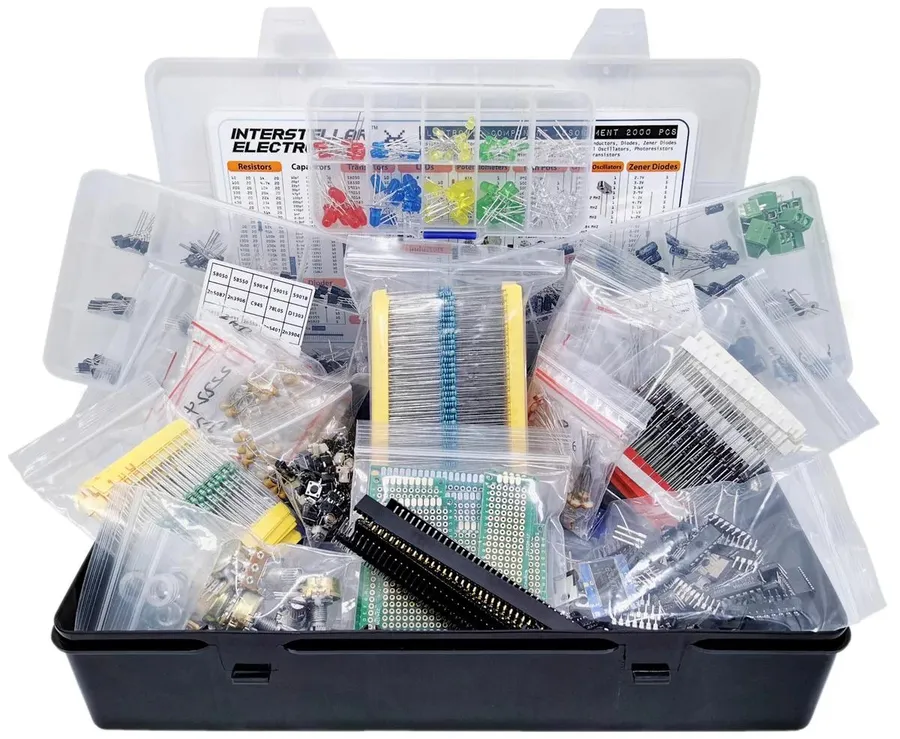
In today's interconnected world, electronics play a vital role in our daily lives. Whether you're a hobbyist tinkering with circuits, a student working on a project, or a professional engineer needing components, finding a reliable electronic supply store is crucial. This article guides you through finding the best options for 'electronic supply stores near me,' covering everything from large chains to niche suppliers, ensuring you get exactly what you need for your project.
Understanding Your Needs: What Electronic Components Do You Need?

Before embarking on a search for electronic supply stores, a clear understanding of your project's specific component requirements is paramount. This initial step ensures that your search is targeted and efficient, leading you to the most appropriate suppliers. The range of electronic components is vast, from basic passive elements to highly specialized active devices. Identifying these needs upfront is critical for project success.
- Basic Passive Components:
Resistors, capacitors, and inductors are fundamental building blocks in almost all electronic circuits. Their values and tolerances are crucial to consider when selecting components. - Semiconductor Devices:
Diodes, transistors, and integrated circuits (ICs) form the core of active circuits. Specifying the type (e.g., rectifier diode vs. Zener diode) and characteristics (e.g., current rating, voltage rating) is essential. - Sensors and Transducers:
These components convert physical phenomena into electrical signals and are used for input. Examples include temperature sensors, light sensors, and pressure sensors. Selecting the appropriate sensing range, accuracy, and output format is important. - Microcontrollers and Processors:
For more advanced projects you need a microcontroller or microprocessor. Determine the core, memory capacity, interfaces, pin count, and speed requirements for your project - Connectors and Wiring:
Various connectors and wiring components are necessary to physically connect electronic circuits. Consider the connector type and wire gauge to meet your project's power, and environmental needs.
Large Retailers vs. Specialized Electronic Supply Stores: What's the Difference?
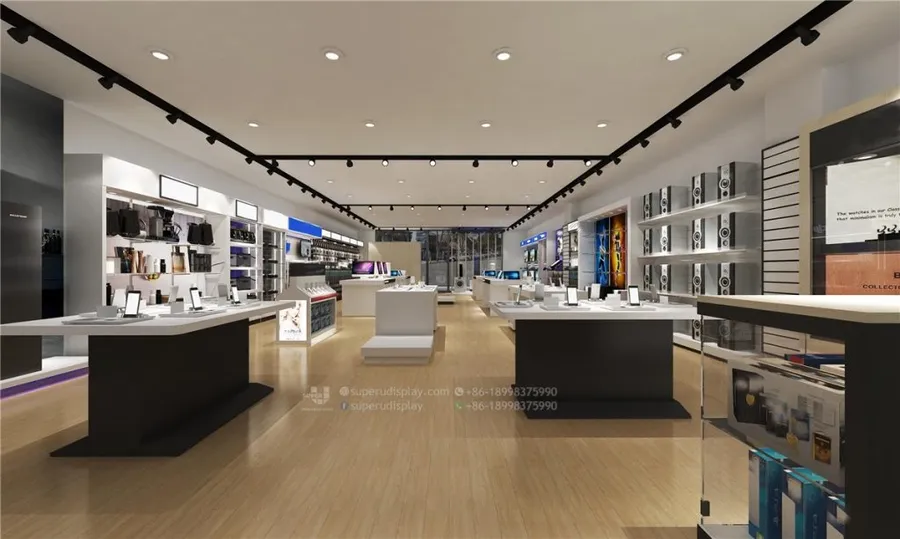
The choice between large retailers and specialized electronic supply stores hinges on the complexity of your project and the level of support you require. Large retailers offer convenience for basic components, while specialized stores provide a wider selection and expert assistance, this section will explore their differences.
| Feature | Large Retailers (e.g., Best Buy, Ace Hardware) | Specialized Electronic Supply Stores (e.g., Micro Center, 'You-Do-It' Electronics, Elliott Electronics) |
|---|---|---|
| Component Selection | Limited to basic components like resistors, capacitors, and some common ICs. May not stock specialized or obsolete parts. | Wide range of components, including specialized ICs, sensors, microcontrollers, and development boards. Often stock obsolete components. |
| Expertise of Staff | General sales staff with limited technical knowledge of electronics components. | Knowledgeable staff with expertise in electronics, often able to provide technical assistance and advice. |
| Price | Often higher prices for basic components due to higher overhead costs. May not offer volume discounts. | Competitive pricing, especially for specialized components. Often offer volume discounts for bulk purchases. |
| Convenience | More accessible due to a wider geographic presence. Convenient for immediate purchases. | May have fewer locations or be in less convenient areas. May require a dedicated trip to the store. |
| Customer Service | Standard customer service with limited support for specific electronic component related issues. | Specialized customer service with staff knowledgeable about components, datasheets, and application notes. |
| Stock Availability | Limited stock depth, may run out of basic components during periods of high demand. | Larger stock depth and more reliable inventory management for components frequently needed. |
Online vs. Brick-and-Mortar Electronic Supply Stores: Which is Best?
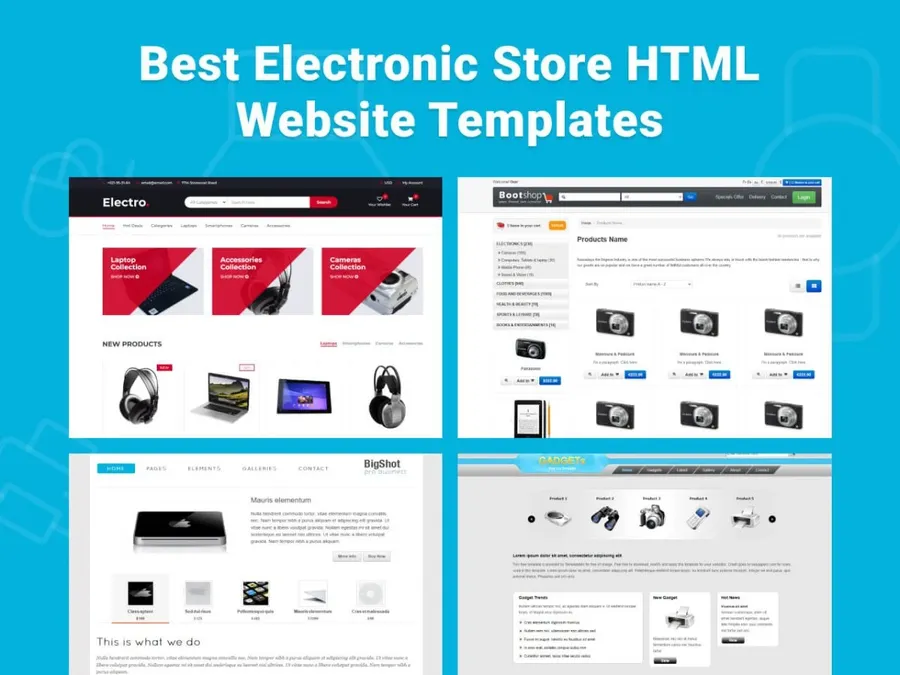
The selection between online and brick-and-mortar electronic supply stores depends heavily on the specific needs of the user. Online stores prioritize convenience and often offer competitive pricing, while brick-and-mortar stores provide immediate access to components and in-person expert advice.
| Feature | Online Stores | Brick-and-Mortar Stores |
|---|---|---|
| Convenience | High; 24/7 access, shop from anywhere. | Lower; requires travel during business hours. |
| Price | Potentially lower due to lower overhead costs; often includes deals and discounts. | Potentially higher due to overhead; prices can be fixed or require negotiation. |
| Selection | Generally wider selection from multiple suppliers; may include older or hard to find components. | Selection may be limited to what is in stock; selection may vary based on store size and specialization. |
| Shipping | Shipping times can vary, additional shipping costs and delays; may be slow for urgently required parts. | Immediate access; no shipping delays or additional costs; immediate troubleshooting. |
| Customer Service | Primarily via online chat, email, or phone; may take longer to resolve issues. | In-person assistance from knowledgeable staff; immediate assistance available. |
| Inspection | Components cannot be physically inspected before purchase, relying on photos and descriptions. | Components can be physically inspected before purchase; better for verifying product condition. |
The choice between online and brick-and-mortar also depends on project requirements and user preference. If you need parts urgently and prefer in-person assistance, brick-and-mortar stores are preferable, whereas if you want the convenience and cost savings, then online stores may be the preferred option.
Navigating Local Electronic Supply Stores: How to Find Them?
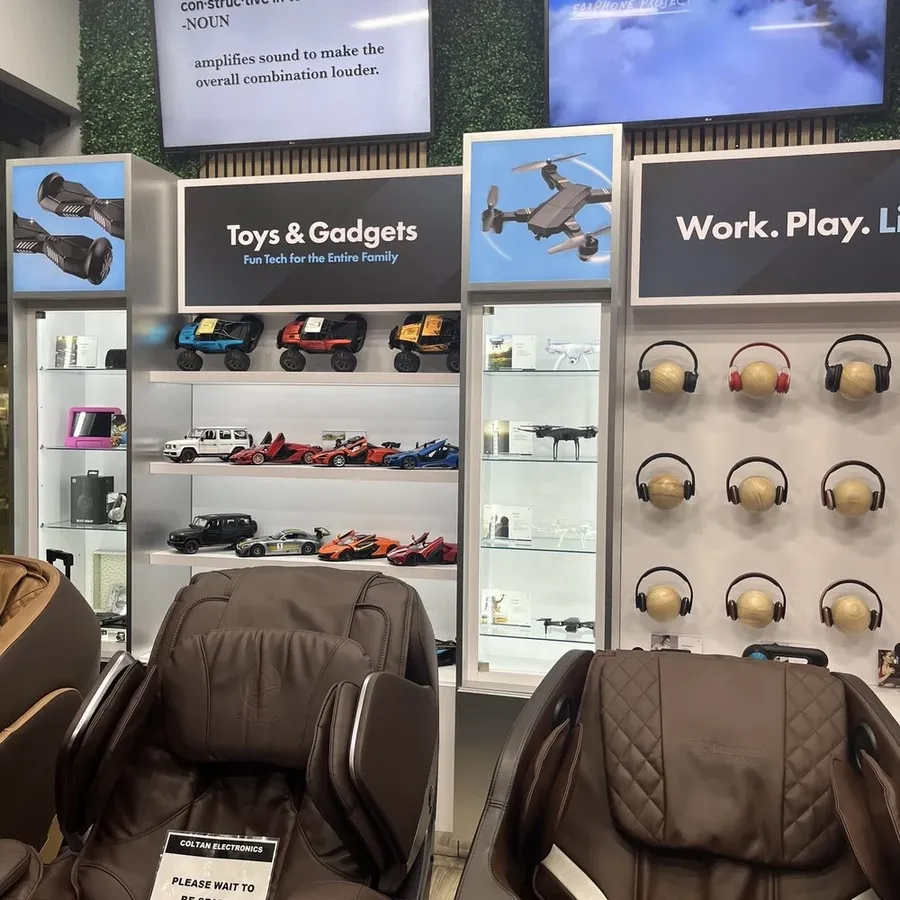
Finding local electronic supply stores requires a strategic approach, combining online resources with community engagement. This section outlines practical methods to locate the stores that meet your specific needs, whether for a personal project or professional endeavor.
- Leverage Online Search Tools
Utilize online search engines like Google Maps, Bing, and DuckDuckGo, using keywords such as 'electronic supply store,' 'electronic components shop,' or 'hobby electronics store' followed by your location. Filter results by reviews and distance to identify the best nearby options. - Explore Online Directories and Marketplaces
Look for niche online directories, such as Yelp, Yellow Pages, or industry-specific websites that list electronics suppliers. Marketplaces like eBay and Craigslist can also help, though verification of the seller is important to ensure genuine components. - Utilize Specialized Mapping Platforms
Tools such as Google Maps offer powerful search capabilities for local businesses. Search using terms such as "electronic components stores near me" or "electronics parts supplier". Check the store's rating, read reviews from other users, and view pictures if available to help assess their offerings before visiting. - Attend Electronic Trade Shows and Maker Faires
Visiting local electronic trade shows, maker faires, and similar events can expose you to a variety of suppliers. These events are excellent for discovering new or smaller component suppliers. Often, you can find unique products and services not found in traditional retail outlets. - Engage with Local Hobbyist and Maker Groups
Joining local electronics hobbyist groups, clubs, or online forums can yield valuable insights and recommendations. Experienced members can often share their preferred local suppliers, thereby providing a direct line to reliable and specialized vendors. Ask for recommendations on forums or during meetings. - Utilize Social Media Platforms and Forums
Check social media groups (e.g., Facebook groups, Reddit) and technical forums, as hobbyists and professionals often share recommendations for local suppliers within these communities. These channels can be a great source of real user recommendations and timely information.
Key Factors to Consider When Choosing an Electronic Supply Store
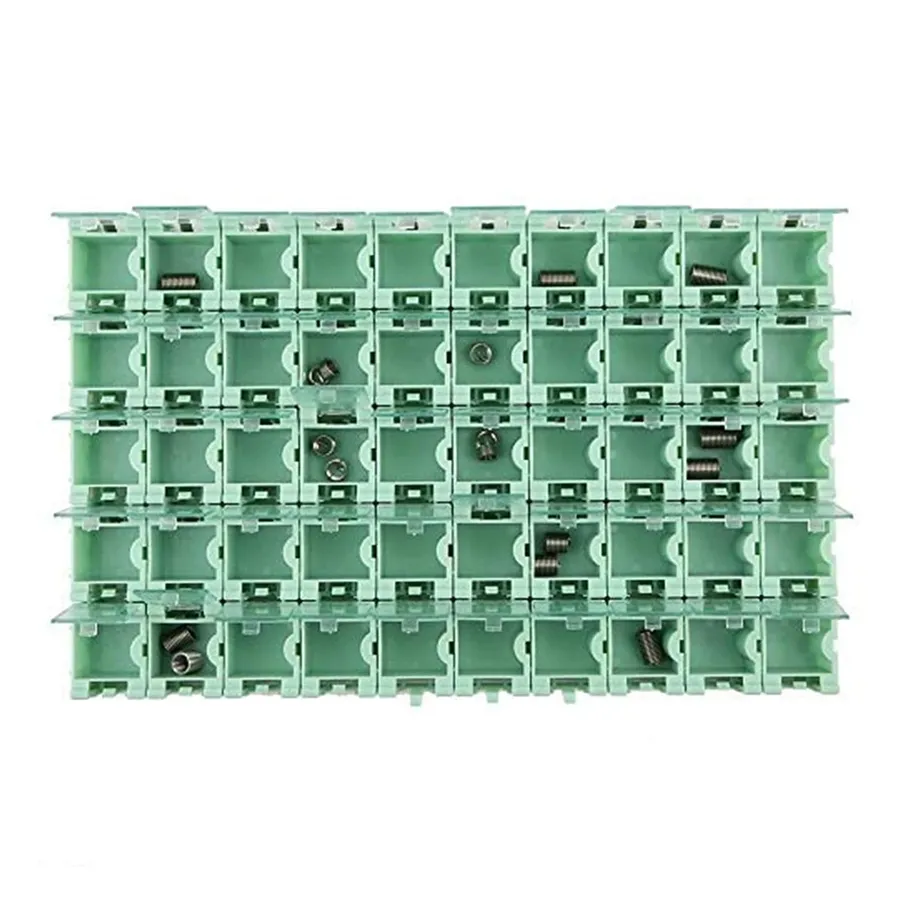
Selecting the right electronic supply store is crucial for any project, be it a simple repair or a complex build. The optimal choice hinges on several key factors, including product selection, pricing, customer service quality, and the store's return policy. A thorough evaluation of these elements will ensure you source the necessary components effectively and efficiently, ultimately contributing to the success of your project.
| Factor | Description | Impact |
|---|---|---|
| Product Selection | The range and availability of components offered by the store. | Ensures all required parts are accessible, reducing the need to source from multiple vendors. |
| Pricing | The cost of components, including unit prices and potential bulk discounts. | Directly affects the overall budget of your project and can improve cost efficiency if favorable. |
| Customer Service | The quality and responsiveness of store staff, including technical expertise and availability of support. | Provides crucial support for finding the correct components, troubleshooting issues, and gaining valuable project advice. |
| Return Policy | The store's policies on returns and exchanges for faulty or incorrectly ordered components. | Offers a safety net for unexpected problems with components and facilitates hassle-free exchanges. |
Customer reviews provide valuable insights into a store’s strengths and weaknesses. Online platforms often host feedback from other shoppers, which can help guide you on your choice. Calling or visiting the store directly allows for firsthand evaluation of service and product availability, offering a deeper understanding of the store’s offerings.
Frequently Asked Questions About Electronic Supply Stores Near You
This section addresses common questions users have about locating and utilizing electronic supply stores, focusing on availability, specific product offerings, and operational details to help you efficiently source the components you need. These FAQs aim to provide practical insights into navigating the world of electronic component retail.
- Do electronic supply stores near me sell Arduino and Raspberry Pi components?
Many electronic supply stores, especially those catering to hobbyists and makers, stock Arduino and Raspberry Pi boards, along with related accessories such as sensors, shields, and power supplies. However, it's best to verify their inventory online or call ahead as stock can vary. Larger retailers may carry a limited selection, while specialized shops are more likely to offer a broader range and specific models. - What are the best options for hobby electronic parts near me?
The 'best' option depends on your specific needs and project requirements. Specialized electronic supply stores are generally the best for hobby electronics, as they offer a wider variety of components, from basic resistors and capacitors to integrated circuits and development boards, while large retailers typically offer basic component selections. Consider customer reviews and recommendations from local hobbyist groups to find highly rated stores known for good service and a wide selection. - What are the business hours of electronic supply stores near me?
Business hours vary widely. Some stores may operate standard business hours, while others, especially smaller or family-run businesses, might have more limited hours. Online listings often include business hours, but checking directly with the store—either by phone or website—is prudent, especially before making a long trip. Be aware that some stores may also have reduced hours on weekends or public holidays. - Do local electronic supply stores offer component testing services?
While many large chains don’t offer component testing, some smaller and more specialized stores may provide basic component testing services, which might include checking resistance or continuity. They might also offer advice on proper use and function. It is best to inquire about such services directly with the store. This can be especially useful if you're unsure about the condition of an older component or need to verify function before integration. - Can I find datasheets or application notes at electronic supply stores near me?
Specialized electronic component suppliers, particularly those dealing in more advanced parts like integrated circuits, often offer datasheets and application notes for their products. These resources are invaluable for engineers and hobbyists who need technical specifications and application guidelines. Online retailers might have digital downloads available, while brick-and-mortar stores may offer printed copies. It's always helpful to confirm this with the store staff or website. - Do electronic supply stores near me offer discounts for bulk purchases?
Many electronic supply stores, especially online retailers, offer discounts for bulk purchases, which can be especially beneficial for those working on larger or repeated projects. Some brick-and-mortar stores may offer discounts as well, especially for regular customers or for large orders. It's always worth asking about bulk purchase programs or if there are any volume-based discounts available, and do not hesitate to negotiate. - What is the return policy of electronic supply stores near me?
Return policies vary significantly by store. Larger chains typically have a clearly defined return policy, while smaller stores may have more restrictive guidelines. Some stores may only accept returns on unopened or unused items, and others may charge restocking fees. Always review the store's return policy before making a purchase and make sure to clarify your options at the time of purchase to avoid future surprises.
Beyond the Basics: Exploring Specialized Components and Suppliers
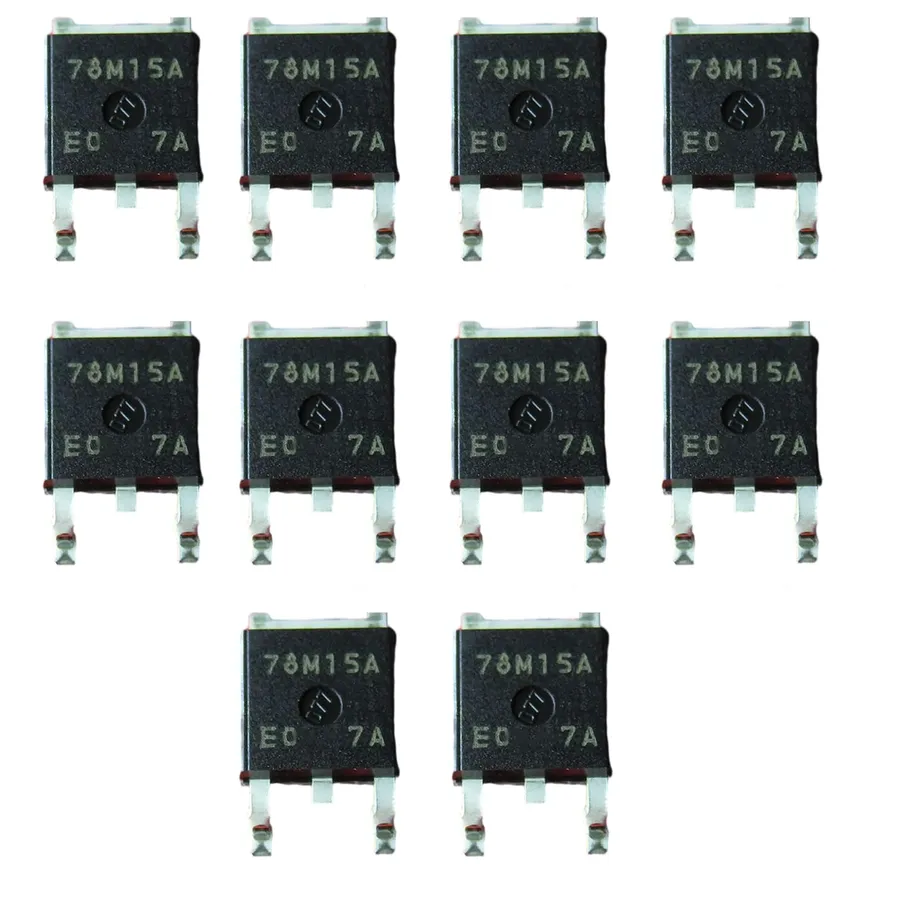
For advanced electronic projects requiring specialized components, the typical retail options may fall short. This section delves into the realm of specialized suppliers who offer niche components, such as integrated circuits (ICs), various types of sensors, and development boards, providing crucial support for complex designs.
These suppliers distinguish themselves not just through their inventory but also by offering datasheets and application notes, which are indispensable for engineers and hobbyists alike. Datasheets provide critical technical specifications like voltage ratings, pin configurations, and operating conditions for individual components. Application notes, on the other hand, offer guidance on how to properly implement these components within a given design. Access to these resources ensures that components are not only the right type for your project, but are also implemented in the correct manner.
| Component Category | Typical Suppliers | Support Resources |
|---|---|---|
| Integrated Circuits (ICs) | Digi-Key, Mouser Electronics | Datasheets, application notes, design guides |
| Sensors (Temperature, Pressure, Motion) | Adafruit, SparkFun | Datasheets, example code, tutorials |
| Development Boards (Arduino, Raspberry Pi) | Seeed Studio, Element14 | Schematics, example projects, community forums |
When exploring specialized suppliers, consider their focus. Some might specialize in certain component types (e.g., ICs), while others might cater to specific project types (e.g., robotics). These suppliers often provide better technical expertise and support than general retailers. Direct relationships with these suppliers can provide access to products and technical expertise which can significantly benefit the advancement of unique or challenging projects. This often includes access to custom or hard-to-find parts, or direct contact with technical teams.
How to Evaluate and Compare Electronic Component Prices
Evaluating and comparing prices for electronic components requires a strategic approach that goes beyond just looking at the unit price. It's crucial to consider all associated costs and conditions to make informed purchasing decisions. This section outlines key factors to consider when comparing prices from different electronic supply stores, both online and brick-and-mortar.
| Factor | Description | Impact on Price | How to Evaluate |
|---|---|---|---|
| Unit Price | The cost of a single component. | Directly affects overall cost, but not the sole factor. | Compare prices across multiple stores, noting differences for the same part. |
| Quantity Discounts | Reduced unit prices for bulk purchases. | Can significantly lower the total cost if you need a large quantity of a single component. | Check if quantity discounts are available, and calculate the total cost based on your needs. |
| Shipping Costs | The cost of delivering the components. | Adds to the total cost, especially for online orders. | Factor in shipping costs and select the option that offers the best balance between speed and cost. |
| Lead Times | The time it takes for a supplier to ship the components. | Can affect project timelines and may necessitate expedited shipping. | Consider how long you are willing to wait for components. Note that expedited shipping often increases cost. |
| Taxes | Sales tax or VAT added to the purchase price. | Increases the total cost, especially in jurisdictions with higher tax rates. | Verify sales tax rates by each online store or each state, and ensure your budget includes taxes. |
| Handling Fees | Charges for packaging and processing. | Adds to the total cost, especially for smaller orders. | Pay attention to handling fees, especially for small orders, as they can make the overall cost prohibitive. |
| Currency Exchange Rates | For international purchases, the exchange rate of your currency versus the vendor's currency. | The rate may affect final cost due to fluctuation | Check the current exchange rate and consider any associated bank fees before making an international purchase. |
| Payment Method Fees | Fees that may be charged for credit card or other payment methods. | Can increase the overall cost. | Select payment options without fees or take any extra fees into account before you make your purchase |
Building Relationships with Local Suppliers: Benefits and How To Do It
Establishing strong relationships with local electronic component suppliers can offer significant advantages beyond simple transactions. These connections often lead to better pricing, access to specialized parts, and enhanced project support, fostering a collaborative environment beneficial for both parties.
- Benefits of Strong Supplier Relationships
Cultivating a good rapport with suppliers can unlock a variety of benefits, including preferential pricing, early access to new products, and customized support. - Preferential Pricing and Discounts
Loyal customers often receive discounts, special offers, and volume pricing that are not available to the general public. These cost savings can be crucial for ongoing projects and research. - Access to Hard-to-Find Components
Established relationships can provide access to rare or discontinued parts that are difficult to source through standard channels. Suppliers are often willing to go the extra mile for valued customers. - Technical Support and Guidance
Suppliers who know their customers’ projects and requirements can offer valuable technical advice, datasheets, and application notes, helping to streamline the design and build process. - Customized Solutions and Special Orders
Local suppliers are more likely to accommodate special orders, tailored packaging requests, and unique component specifications. This level of flexibility is essential for specialized electronics projects. - How to Build Strong Relationships
Building a solid relationship takes time and consistent effort, starting with establishing personal connections and clear communication. - Regular Visits and Face-to-Face Interactions
Visiting the store regularly helps to familiarize yourself with the staff, allowing for direct discussions about your needs. This level of personalization builds strong foundations for good communication. - Clear and Consistent Communication
Clearly articulating your needs, providing project updates, and asking questions demonstrate a genuine interest in the supplier’s services. Prompt and respectful communication builds trust. - Consistent Business and Loyalty
By placing consistent orders, you will establish credibility as a reliable customer, which motivates suppliers to prioritize your needs and provide additional support and consideration. - Feedback and Appreciation
Providing feedback on their products and services, both positive and constructive, helps them improve their offerings. Expressing gratitude for their assistance fosters a collaborative and positive relationship.
Finding the right electronic supply store near you is vital for your electronics projects. Whether you prefer the convenience of large retailers or the specialized expertise of niche shops, using the tips in this guide will help you find the electronic components you need. Remember to always research, compare prices, and consider online stores for added convenience. With a little effort, the perfect electronic supply stores near me will be within easy reach for all your future DIY projects. Happy tinkering!
 AnyPCBA
AnyPCBA